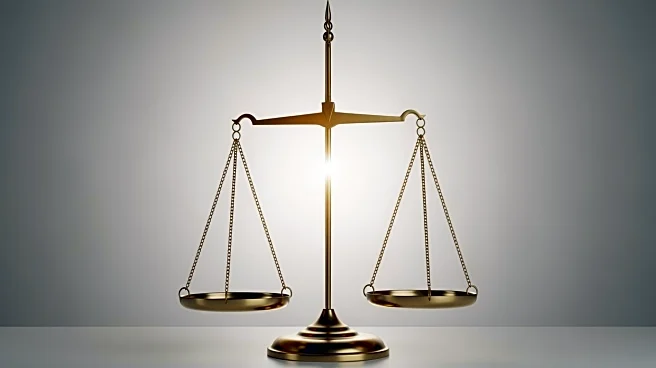What's Happening?
Supreme Court Justice Ketanji Brown Jackson has issued a temporary halt on an order requiring the Trump administration to make full Supplemental Nutritional Assistance Program (SNAP) payments for November. This decision pauses some payments until the U.S.
Court of Appeals for the First Circuit can address the administration's appeal. The ruling does not address the legal merits of the case but provides a temporary reprieve for the administration, which is facing legal challenges over its handling of SNAP funding amid the government shutdown. The SNAP program, crucial for providing grocery assistance to millions, is facing funding lapses as the shutdown continues.
Why It's Important?
The temporary halt on SNAP payments is significant as it affects approximately 42 million Americans who rely on this assistance for their food needs. The decision underscores the legal and administrative challenges faced by the Trump administration in managing federal aid programs during the shutdown. The funding lapse in SNAP is a visible consequence of the shutdown, highlighting the broader impact on public welfare and the urgency for a resolution. The legal battle over SNAP funding reflects the complexities of government resource allocation during a shutdown and the potential for prolonged disruptions in essential services.
What's Next?
The U.S. Court of Appeals for the First Circuit will review the administration's appeal, which could lead to further legal proceedings. The administration is expected to continue its efforts to secure funding for SNAP, potentially involving reallocations from other programs. The outcome of these legal and administrative actions will determine the future of SNAP payments and the broader implications for government assistance programs. Stakeholders, including state governments and advocacy groups, are likely to respond to developments, emphasizing the need for a swift resolution to ensure continued support for vulnerable populations.















